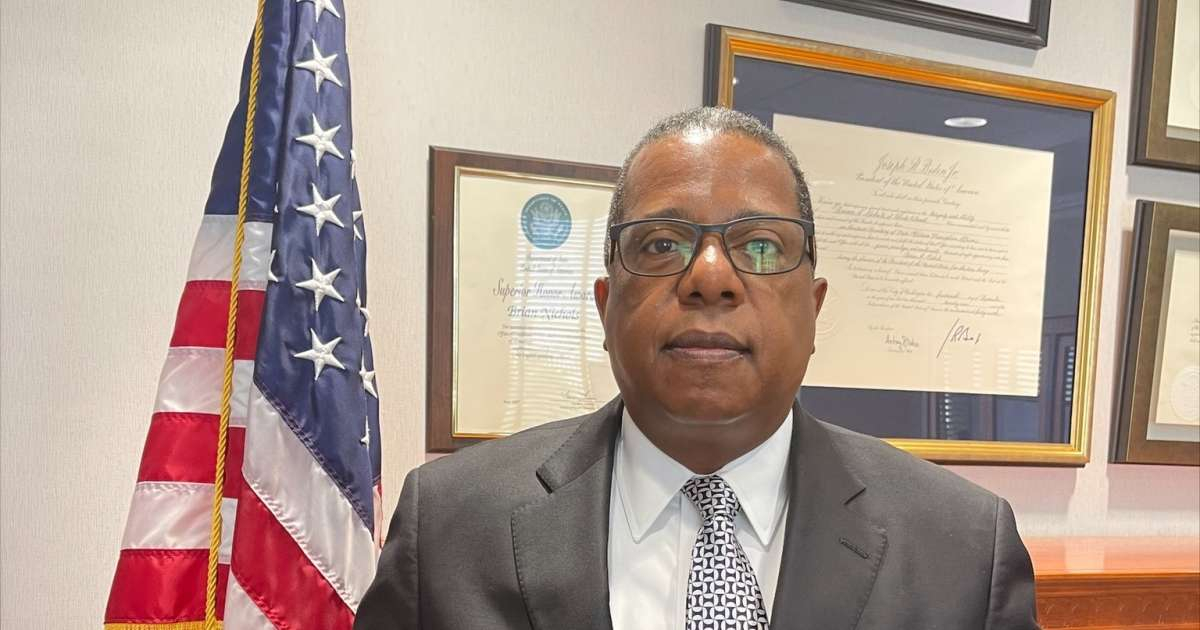
The United States government announced that is willing to welcome Cuban political prisoners if they are forced into exile.
"While we firmly oppose forced exile, the United States will not turn its back on political prisoners, and If they want to come to the United States, we will explore the avenues available under US law to welcome them.", said Brian A. Nichols, Undersecretary of the Department of State during a speech at Florida International University (GIU) in Miami.
Nichols recalled that both publicly and privately, in conversations with Cuban officials, his administration has been calling for the release of political prisoners.
"And we always emphasize that the Cuban people must be able to choose where to live and the government must allow its citizens to return to Cuba"Nichols stressed.
The official added that the American embassy in Havana maintains constant communication with the dissident community in Cuba, including the families of prisoners, and noted that they all face extremely difficult conditions.
The release of political prisoners, mainly 9/11 protesters, began to be considered a possibility after efforts by the Catholic Church and the visit to Havana by Cardinal Beniamino Stella, at the beginning of February. The release of Cuban prisoners would be a step for Washington to relax sanctions in force since the era of Donald Trump and prepare to remove Cuba from the list of nation sponsors of terrorism.
Nichols stressed that the Cuban people face one of the worst political, economic and social crises since Fidel Castro came to power, and that the human rights situation is bleaker than it has been in decades.
"Many Cubans believe that they have no future left on the Island. "That sense of desperation and longing for greater freedoms led to the protests of July 2021," he said.
The diplomat regretted the attitude of the Castro regime, which instead of addressing citizens' concerns, responded with its characteristic repression, and sentenced hundreds of protesters to prison with sentences of up to 25 years.
"In the more than 18 months since these historic protests, the regime has only redoubled its repression. NGOs estimate that More than 700 protesters are among more than 1,000 political prisoners who remain behind bars today," the official said.
The United States' willingness to host Cuban political prisoners who are expelled by the regime comes five years after the Refugee Admission Program (USRAP) was frozen following the closure of the US embassy in Havana.
In the panel organized by the Cuban Research Institute (CRI) of FIU, Rosa María Payá, promoter of the Cuba Decide civic initiative, advocated resumption of refugee program, frozen since 2017.
Payá denounced the situation of political prisoners and the regime's repression of internal dissent, and stressed to Nichols and the charge d'affaires of the US embassy in Havana, Benjamin Ziff, the need for an initiative aimed at creating a new visa category for victims of political repression in countries dominated by a dictatorship.
In July 2022, Nichols expressed that the process to restore that immigration option would not be available in the short term, and that the program for citizens victims of political persecution who seek to emigrate to the United States will remain frozen with no reopening date, despite calls from activists and human rights organizations to reactivate it.
Interrogated by CyberCuba, The official admitted that the Havana embassy did not have "the capacity to increase services in other areas" such as the refugee program.
"We are committed to fulfilling all our obligations to promote orderly emigration, opening more legal avenues for people who wish to emigrate, but it is a process that requires some time," he said then.
What do you think?
SEE COMMENTS (14)Filed in: